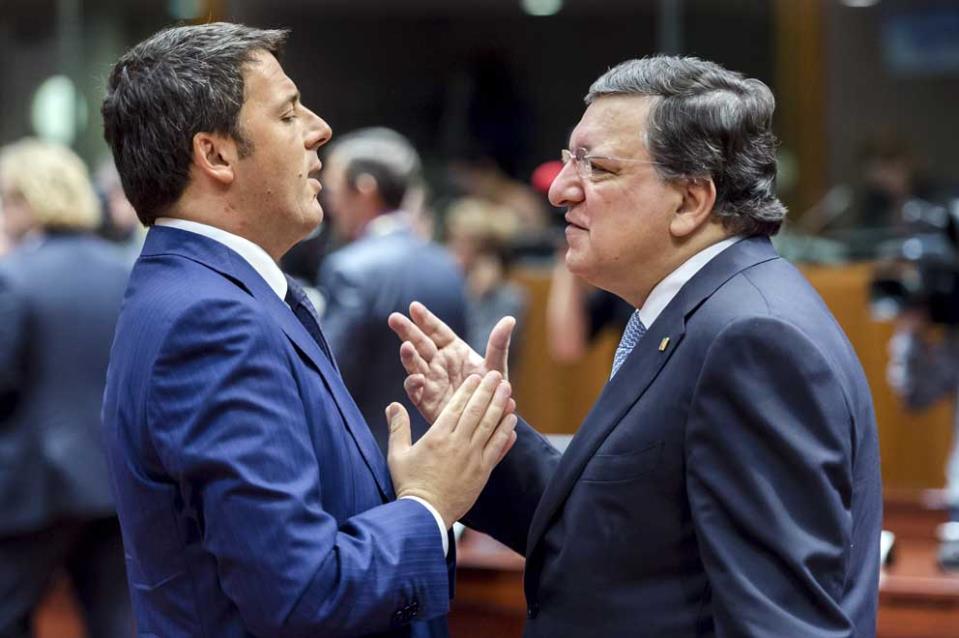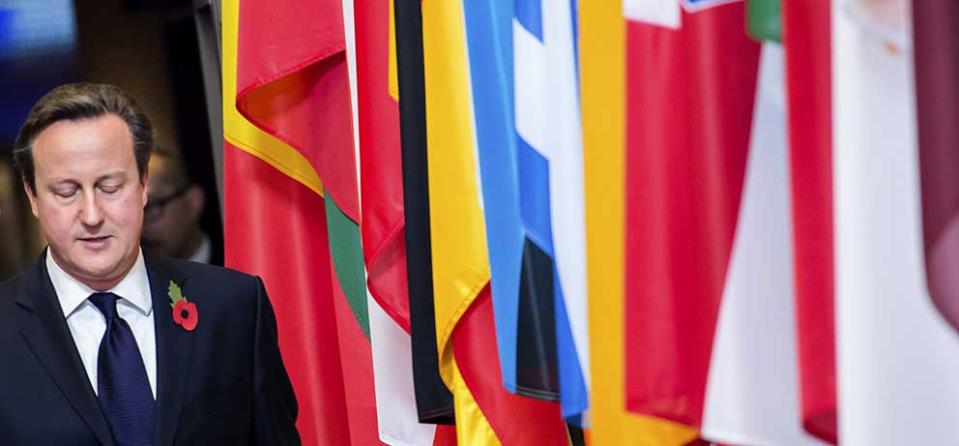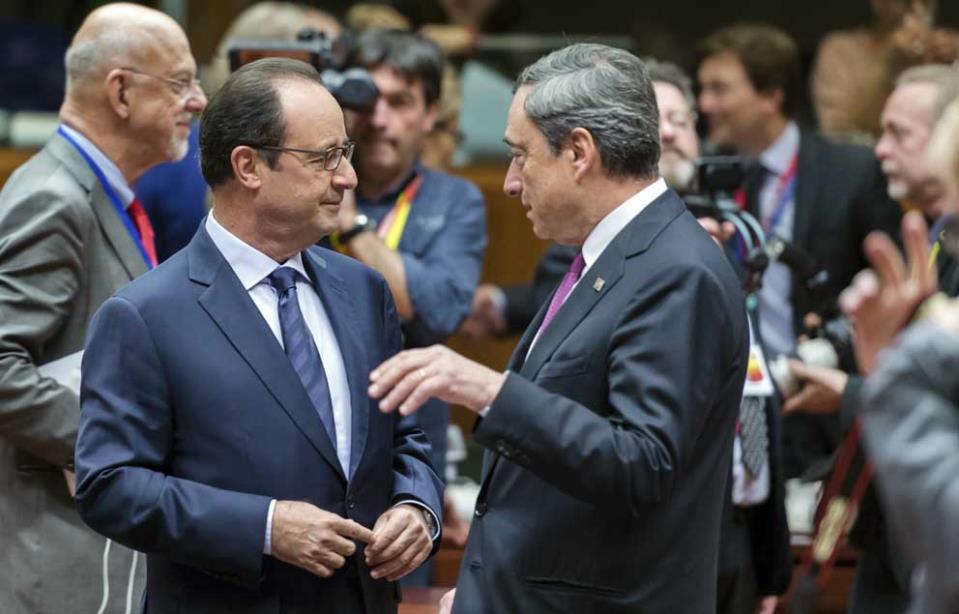Malta has been asked by the EU to contribute an increased sum of EUR 13 million to the EU budget.
This, and the increased sums that have been asked of the UK (EUR 1.78 billion), the Netherlands and other member states, are the result of what is called a statistical adjustment.
Unlike other countries, Prime Minister Joseph Muscat told the media at a briefing, Malta knew what was coming, thanks to the up-to-date efficiency of the Ministry of Finance and the Permanent Representation in Brussels. Other countries were not so prepared, as one can deduce from the surprised tones of horrified reactions in the UK.
This is a long-standing mechanism worked out on GNI and VAT takings. However, this is the first time the increased contributions being asked for were so great.
At the European Council there was however unanimous agreement on a pause while the ministers of finance meet and ask for clarifications from Eurostat on whose workings the additional requests were based
No one is looking for a fudge but just for an explanation, Dr Muscat said.
While being mentally prepared for this increased request, Malta is also looking at ways in which it can hope to get increased funds from the EU next year.

Special mention of Malta in summit conclusions
The Council conclusions agreed on Thursday night mention Malta in a specific way. The conclusions say: "Member states and the Commission will facilitate the implementation of projects of common interest including those identified in the European Energy Security Strategy which link in particular the Baltic States, Spain and Portugal, to the rest of the internal energy market, ensure that they have the highest priority and will be completed by 2020. Special attention will be paid to the more remote and/or less well connected parts of the single market such as Malta, Cyprus and Greece."
Commenting on the conclusions, Dr Muscat said the conclusions are a compromise and maybe, as a compromise, do not fully satisfy everyone. However, the conclusions enable the EU to have a headstart of one year before the all-important global conference that is due to meet in December 2015 in Paris and enable the EU to lead the way as a united bloc.
The wording of the conclusions, as reproduced above, in which Malta was mentioned along with the Baltics, the Iberian peninsula and Greece and Cyprus mean that Malta will be eligible for additional EU funds for specific projects.
In particular, Malta may get EU funds for the ongoing study on the feasibility of a gas pipeline that reaches Malta. While eventually there may be a gas pipeline that links Malta to the North African countries, which would mean Malta would no longer be a peripheral country of Europe, the gas pipeline that now seems more achievable would be the one being planned from Azerbaijan passing through Albania and onwards to Italy near Taranto. A branch of this pipeline might eventually reach Malta and the presence of the Azeri component of Socar in ElectroGas which is involved in the new power station might facilitate matters.

Replying to questions, Dr Muscat highlighted other areas in the conclusions where Malta did well. It is of satisfaction to Malta that the EU agreed to estimate targets by reference to GDP as any other alternative would have penalised Malta.
Then too, Malta successfully lobbied for flexibility in the setting of targets. Malta, through its new power station will cut emissions by an estimated 1.2 million tonnes a year and thus reach 2020 targets and it has successfully lobbied to get this advance to bargain for EU help for those other areas that are pushing emissions upwards - traffic, agriculture (through slurry) and airconditioners past their use-by dates.
Technically, this was expressed by the acronyms Emissions Trading Systems (ETS) and non-ETS with ETS referring to Enemalta and non-ETS referring to the three areas mentioned in the preceding paragraph. Before the council there was concern in the Maltese delegation that gains in ETS would not be allowed to compensate for the non-ETS section.
The fact that Malta did not use the re-couping in previous years may have worked to its advantage.
Malta will now launch schemes to convert old air-conditioners just as was done in the case of old cars in recent years.

The economic debate
This morning's session was dedicated to an open discussion on the economy.
Dr Muscat said there was not the confrontation between those in favour of austerity and those in favour of growth as was widely feared.
There was agreement that the economy in the EU is not doing so well as was hoped.
In his intervention in the Council, Dr Muscat said, he had insisted on the need for discipline but not on rigidity.
There was also widespread agreement that two big economies - France and Italy - are in trouble and need time to reform their way back to growth.
Dr Muscat spoke to the media before rushing up to the meeting of the Euro-group which was due to be addressed by Mario Draghi, ECB president. With interest rates being at a historic low, there remain few tools the ECB can use. But there may be other ideas.
While in Brussels, Dr Muscat was still keeping an eye on what was happening in Malta. He expressed satisfaction at the unemployment figures which came out this morning which show a 15% decrease of unemployment from January to September.

TTIP
Finally, in reply to a question by this paper, Dr Muscat confirmed Malta had been one of the 14 EU countries including Portugal, Britain, Spain, Denmark, Finland, Ireland and the Czech Republic but significantly neither France nor Germany which have warned incoming Commission president Jean-Claude Juncker from watering down what has already been agreed on the Transatlantic Trade and Investment Partnership, in other words the free trade agreement between the EU and the US.
Dr Muscat said Malta does not subscribe to scaremongering: access to the US market is good for Malta especially for multinationals based in Malta.
It is true there are issues because of different regimes and GMOs but these can be resolved and the over-arching advantages outweigh the disadvantages.